A SYDNEY woman killed in a Coalition air strike in Syria has been revealed to be a chief Islamic State recruiter who, along with her husband, planned attacks against the West.
For the past seven months Jabar has used the name Umm Isa al Amrikiah and a Telegram account to encourage fighters and women to Syria, lambasting those too cowardly to come and hitting out at women not living under strict Islamic dogma.
A News Corporation investigation now reveal that the person behind the nom de guerre was in fact 21-year-old Shadi Jabar, who fled Sydney in October last year, one day before her 15-year-old brother shot dead police accountant Curtis Cheng in Parramatta.
But until her death, in a targeted coalition air strike on the Syrian town of al Bab on April 22, Abu Sa’ad al-Sudani, little had been known about her time in Syria. She had never discouraged thinking that the woman behind the Amrikiah social media accounts was an American woman.
She boasted of being married to “The Beast” who was also known in Jihadi circles as The Beast of Islam. Her Sudanese husband was also killed in the same air attack.
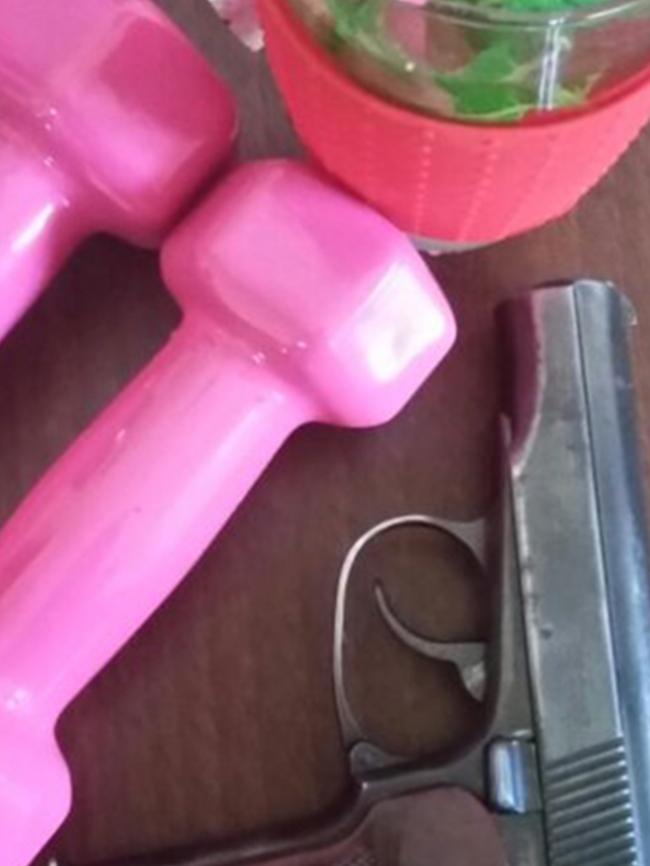
In her months in Syria Jabar had risen to what would appear to be senior ranks within the jihadist group’s propaganda arm. In confirming her death, a Pentagon spokesman described Jabar and her husband as “active in recruiting foreign fighters in efforts to inspire attacks against Western interests”.
Just six weeks ago, she discussed her own brother’s murderous attack.
“ ... our young brother who was 15 years old and does an operation in Australia ... Brother Farhad may Allah accept you.”
One day before the Islamic State attack on Brussels airport she posted the contact details of a Belgian recruiter for brothers who wanted to join and later posted a piece defending the airport massacre, saying it was “totally Islamic”.
News Corporation has followed Jabar since her online debut in January this year and communicated directly with her in the past few months.
What is clear is that by the time of her death, she was completely radicalised and wanted to become a martyr. There is no suggestion that she had any children.
TELEGRAM MESSAGE
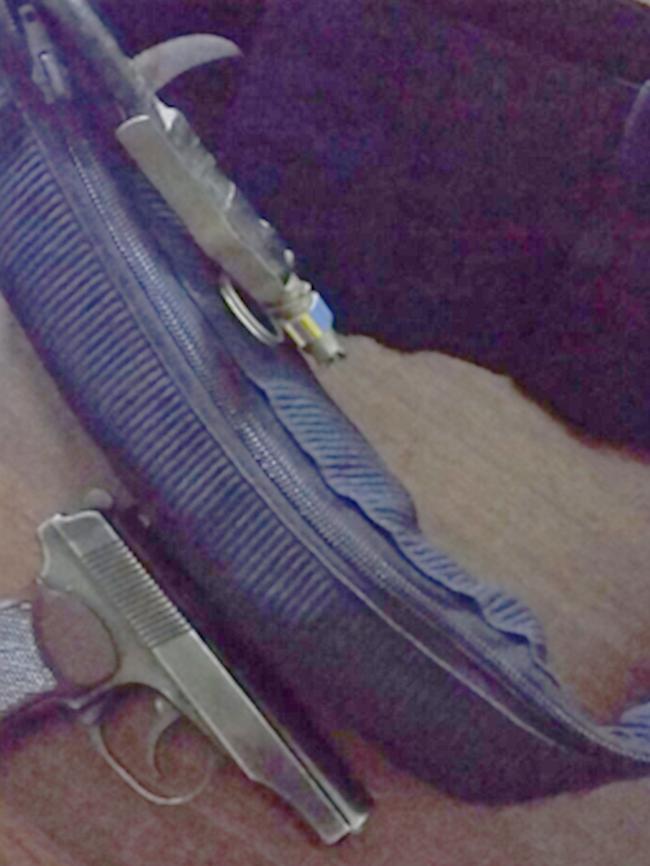
AT its height, her encrypted Telegram channel - which she used to spread Islamic State ideology and tell women how to behave - had more than 1200 members. She was regularly quoted.
She posted photographs of life in Syria, the food she cooked and the picturesque sunsets and sunrises. One showed a gun surrounded by snacks, Nutella, biscuits, pink dumbbells and other treats and was called “Life in Dawlah”. But she never used a photograph of herself, chastising those women who deigned to post photos of themselves, even covered up. “If you look pretty or cute in the hijab then know that you’re doing something wrong.”
On January 19 she posted a photograph of what she claimed was a suicide belt and the following:
“Alhamdulillah finally got my Hizam (suicide belt) today. May Allah subhana wa ta’ala grant me the opportunity to use it soon, to grant me the honour to sacrifice my self for Him, for His deen (to kill the kuffars). May Allah subhana wa ta’ala grant us all shahadah Ameen.”
TELEGRAM TRAP: Read Shadi Jabar’s poisoned posts
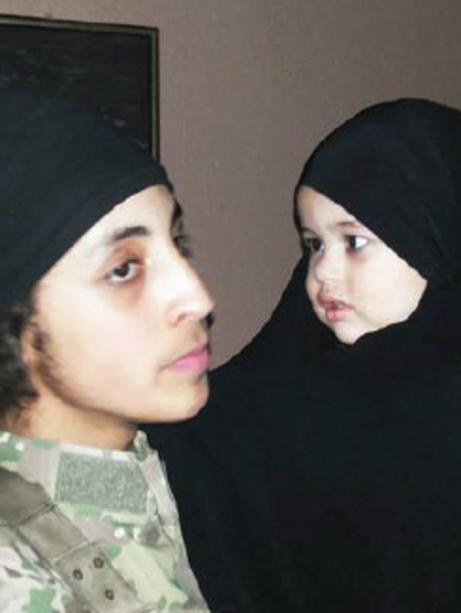
Her profile photograph was a pair of small pink dumbbells, a revolver and a cup. She described herself as “living in dawlah (ISIS) with a beast” and said her Telegram channel was for short reminders and life in Syria.
She regularly railed against men who she said were too cowardly to fight.
On January 25 she wrote:
“Who out there will get up and kill the kuffars (infidels) in the west? Who wants to sacrifice himself for the sake of Allah subhana wa ta’ala? Get of your couches and do something instead of spending 24/7 on social media. You think you are doing something good by posting some ahadith and verses of the Koran, while your brothers are out in the cold dark night facing the enemies? You cry out on social media ‘I want sharia, I want to make hijrah yet you are doing nothing about it. You are not a man, just a male.”
In another she lambasted men for messaging her, stating the prohibition of men contacting women.
“I laugh at your pitiful state. Sham (Syria) is not a tea party do don’t make the excuses that you didn’t know of this prohibition … Even a dog can be taught basic commands like sit, walk, bark and be quiet. Yet sad it is that some men cannot even learn simple rules like ‘go away’. Do you need a doggy treat every time you learn to obey commands? Where has your intellect gone?”
‘INFLUENTIAL ISIS RECRUITERS’
IN announcing the air strike, Pentagon press secretary Peter Cook said: “The death of al-Sudani and Shadi remove influential ISIL recruiters and extremists who actively sought to harm Western interests and further disrupts and degrades Islamic State’s ability to plot external attacks.”
He said that Al-Sudani was involved in planning attacks against the US, Canada and the UK.
“We believe that … they were engaged in plots aimed at the United States, these other countries. There was an effort specifically to target Western interests and we took this strike because we believe that this was in America’s national security interest and that they did pose a threat to the United States. They posed a threat to the United States and to other countries and that this action, we believe, has eliminated that threat,” Mr Cook said.
In one online Telegram post, a fellow Islamic State member, confirmed the couple’s deaths on May 1, saying: “Our brother abu isa amriki and his wife umm issa have attained shahada together may Allah accepted them and today I can confirmed it as I went to his house which was turned into rubbbles so anyone who was in contact with him or his wife pray for them allah to accepted them into firdaws aaaameeenn-From a brother.”
It is understood that prior to flying to Singapore on October 1 and then on to Turkey, Jabar had not been on the radar of law enforcement and was pretty much a ‘cleanskin’.
It was only after her brother Farhad Jabar’s death and that of Mr Cheng that authorities discovered that Shadi Jabar, then 20, had gone overseas. Her 15-year-old brother had escorted her to the airport. Australian authorities asked their counterparts in Turkey to attempt to track her down but she never showed up at a hotel she had planned to check into and it was long assumed she was in Syria.
AUSTRALIAN RECRUITS
ACCORDING to the AFP’s counter terror chief, Assistant Commissioner Neil Gaughan, there are believed to be about 15 Australian women in Syria. Five fled Melbourne to become Jihadi brides in the past nine to 12 months.
The women, whose identities are unknown, travelled in two groups of two and one woman made the trip to Syria via Turkey on her own to meet up with her ISIS husband.
The women were believed to be aged between 17 and 25.
And at least one of the Melbourne women has been killed since fleeing to Syria. It is unclear whether the woman was one of the new recruits or prior.
In addition to the 15 Australians in Syria, another 15 are believed to be in the region and about 10 are providing support in Australia.
Mr Gaughan said most of the women who had gone from Australia to Syria were aged between 19 and 25 years. Those younger were in the minority.
He said the message to young women thinking of going to Syria was that it was not as portrayed.
“The message is that it is not as glamorous as has been portrayed in social media … it’s a war zone,” Mr Gaughan said.
CONVERSATION WITH A JIHADI BRIDE
MY first contact with the woman calling herself Umm Isa al Amriki was in December last year. At the time I believed she was American. That’s what the analysts and researchers monitoring her social media handles believed.
I messaged her asking to chat. “How may I help you?” she replied.
When I told her I was reporter and I wanted to talk to her about the lives of the women living in the Caliphate in Syria she replied:
“Whatever you are looking for is in dawlah videos. They speak the truth. If you would like to know further read the seerah of the Prophet Mohammad (peace and blessing of Allah upon him) and the Koran. You will find your Answers in them.”
Later, in January, when I asked again if we could chat further, she suggested research into Islam and women could help me and replied:
“Hi, you are welcome. If you have studied and seeing that you are curious about women in Islam you probably have looked into how Muslim women were at the time of the Prophet Mohammad (peace and blessings of Allah be upon him) especially how they were treated at his time. Also you must have looked into how Muslim women should be. If you have not done that research then am sure if you do you will get your Answers.”
By February the replies were more frosty when I asked if any of the Australian women in Syria might like to chat with me:
“No one wants to chat with u. The women live their normal lives here only differences is that they live under the Koran and Sunnah with constant bombardments from you kuffars (non-believers).”
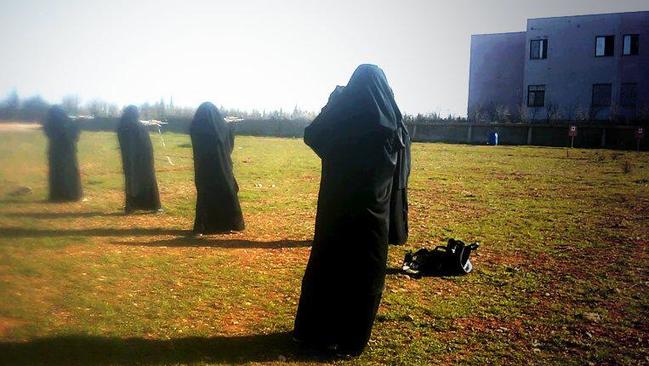
She questioned why I remained silent and did not speak against the kuffars who were bombing the Islamic State.
“You claim you are innocent from this yet you don’t do anything when women here who just live their normal lives are killed. It is these women who are innocent.”
And in response to my question about Australian women:
“The Australian women will not speak
with you they have better things to do. You want to speak with them so you can spy? So you can go ahead write lies and spread it on the news?”
At this stage it was still not clear that Umm isa al Amriki was indeed Shadi Jabar from Sydney.
Asked if any of the Australians wanted to come home to Australia, she snapped:
“No one wants to come back why would they? Even if they do they will be jailed anyway. The hospitals here take priority on the women who made hijrah (Islamic migration) than those native ones. Ofcoz you will not say the truth. You think we will believe you? Do far non of you hs said the truth.”
She suggested that if I was so concerned about the women and children I should go out and protest.
After February 11 the woman who we now know was Shadi Jabar was no longer conversing with me.
THE LURE OF THE ‘CHAT’
YOUNG Australian women are being lured to the Islamic State regime by recruiters who prey on them on social media, targeting them in Facebook groups around cooking, fashion and even the popular Minecraft game.
The recruiters, often well-educated people with many online personalities, target young women with grievances, engaging them in soft conversations about schools, fashion and recipes before luring them to the Islamic State ideology.
Australian authorities estimate there are now between 10 and 15 young Australian women currently in Syria with ISIS and about the same number providing support in the region. Another 10 or so women are believed to be supporting them from Australia.
EXPLORE MORE: How to snare an ISIS bride
Researcher and PhD candidate at Edith Cowan Univeristy, Dr Robyn Torok, has spent four years observing radical and extremist Australian Facebook pages, observing and collecting data for about 50 hours per week from more than 5000 pages, groups and profiles.
Dr Torok has studied how young people are radicalised online and the processes used to turn an ordinary teenage girl into a would-be ISIS bride, desperate to live in the Caliphate under strict Islamic law. The internet and the online world has been a boon for radical recruiters, many of whom have multiple accounts and online personalities and who are skilled in the art of deception.
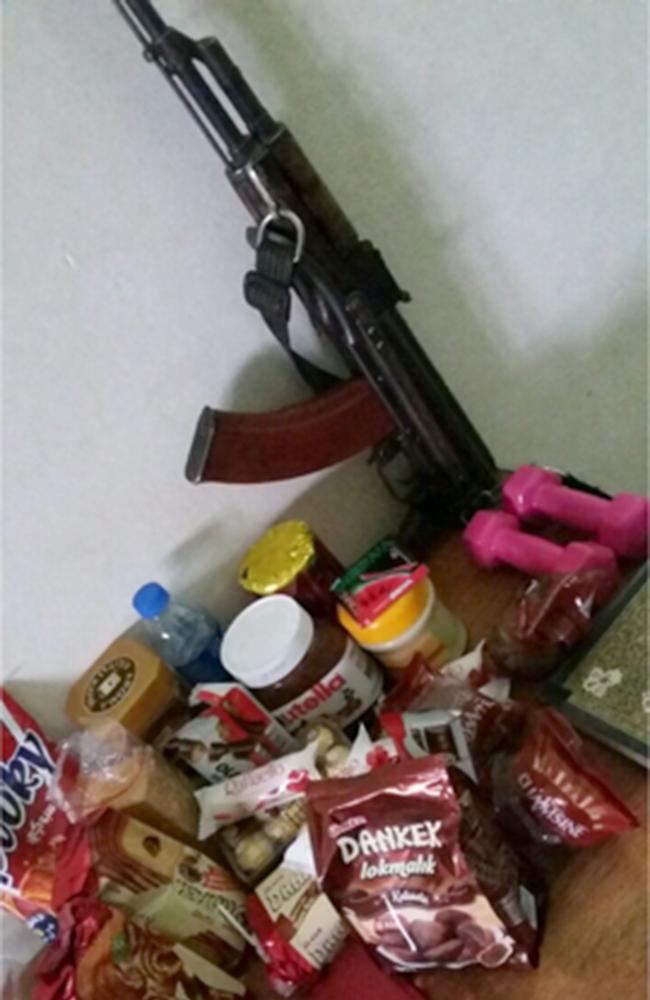
Dr Torok says the recruiters watch the online behaviour of potential recruits, what they click to like and what comments they make.
“They ask questions and they are drawing out answers, and then they are liking the answers and asking more questions,” Dr Torok says.
Dr Torok says the environment in some online chats lends itself to questions and political discourse because often the parents are already disaffected and have issues with the Government and authority.
Cooking is another area where recruiters target young women. “They talk about cooking, have you tried this, have you tried that.”
APOCALYPSE NOW: The prophecy that drives Islamic State
Then it moves on — “I am single too, my sister is single too, what sort of support groups are you going to?”
Dr Torok says that before long there is a rapport, trust and friendship and then they are being pulled away from their offline environment.
“The key to everything is rapport, trust and friendship. Once you have that you are pulling them further away from their offline environment, especially young people who are living through social media,” she says.
Comments like — “Swans are a great team, I dated a girl like that” “used to listen to that music a while ago” — are used top build rapport and make connections and then it moves to comments like “cops are power hungry pigs, forget them” and “I have friends who have experienced what we have” and then it moves to grievances like “Islam is criminalised” and “Muslim sisters are raped, children murdered by occupants of our lands”.
Sporting groups are another area where recruits are easily found, along with music and teen magazines and fashion.
Eventually it moves to non-Muslims taking the Shahadah declaration of faith and then moving on to talk of martyrdom, the use of violent imagery to encourage acts of terror.
Dr Torok says that many of the online recruiters are what could be called “blonde Barbie types” who have the painted nails and wear pink, have never been to Syria and would never go but are good at convincing others to go.
Dr Torok says that the message coming through the encrypted apps now is the value of terror attacks on home soil.
“The message coming through on the encrypted apps now is the biggest way to send fear into the heartland is to do an act of terror where they live,” she says.
DEFENDING AGAINST THE FAITH
POLICE are now using the expertise of forensic psychologists in the fight against terrorists.
The Victorian counter-terror command now has two forensic psychologists working fulltime with the team in what the counter-terror chief, assistant Commissioner Ross Guenther says is a “game changer”.
“To me that’s one of the most critical assets that I have at the organisation’s disposal because we can put an intelligence lens over a piece of information but a psychologist puts a behavioural lens over it and they see things quite differently. So in terms of our capacity to assess risk and what we would do to mitigate that risk we have got great opportunity out of that. It’s a game changer for me,” Mr Guenther said in a wideranging interview with News Corporation.
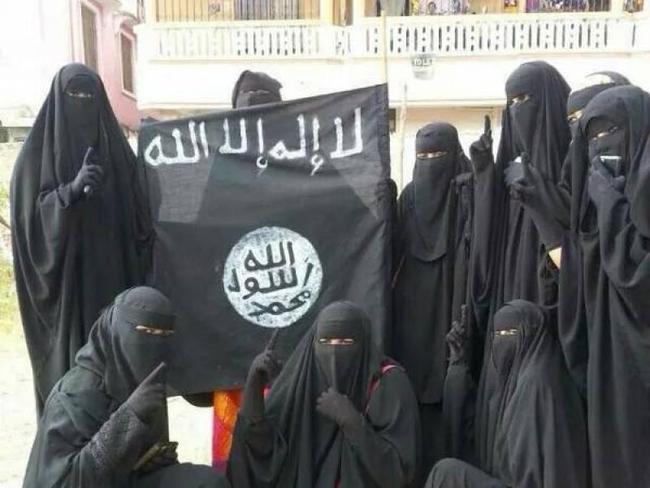
“The way we work with the psychologists is quite brilliant … having that function is great because what it does is that it tests our own thinking.” He said their role was important in terms of prevention and response.
“I can think of one example where they’ve certainly intervened and significantly diminished the risk.”
DELVE DEEPER: War on terror turns to hearts and minds
Mr Guenther says his team was now also researching the role of women in fostering an environment that allows extremist ideology to grow.
“Because I don’t think it’s something we have done terribly well in the past. I think what we have done … we have focused very much on the men and the young men that are going there and then when I look at it and see we’ve still got lots of young women actually travelling there.”
Mr Guenther said the gap was how to connect with mothers and women in the households to prevent young women and men from radicalising.
“I think the dynamics of our thinking has to change and we need to really look much more broadly around that.”
Mr Guenther says one of the big challenges is identifying young female role models and supporting them.
“What we know is that it doesn’t matter how hard we can preach about the challenging conditions over there it’s not stopping people going over there. So the best opportunity we have to interrupt here is by role models here saying, actually you can have your identity, you can live your strict religion, that’s all available here in Melbourne and Victoria. And that’s something that we need to do and actively sponsor.”
HOW CAN WE COUNTER THEM?
His advice for parents, relatives and friends of young people?
“My advice is to reach out to their community, reach out to their congregations, have a discussion with the schools, with their teachers … I think that’s the first port of call to express their concern to teachers, congregations, community people that they trust”.
Law enforcement, he says, is just one cog in the wheel.
“We live in a really safe and secure society and I think its really important for the community as a whole to actually ensure that that remains the case. That would be my message. It’s not just a role for law enforcement. Yes, we play a part in it, we are one cog in the wheel … even by volunteering observations there is a big role for the community there. I’d encourage the community to be part of that involvement, their observations are really important.”

Add your comment to this story
To join the conversation, please log in. Don't have an account? Register
Join the conversation, you are commenting as Logout
Here’s what you can expect with tomorrow’s Parramatta weather
As we move into summer what can locals expect tomorrow? We have the latest word from the Weather Bureau.
Here’s what you can expect with tomorrow’s Parramatta weather
As we move into summer what can locals expect tomorrow? We have the latest word from the Weather Bureau.